First-Time Parents in Our 40s.
Building a Family Culture with Intention and Grace
Jenelle and I had a lot of fun during the first seven years of our marriage. Aside from a COVID-cancelled European vacation, there wasn’t a to-do box we didn’t check. The final box on that initial list was to become parents. As some of you know, that goal proved to be the most difficult. But we don’t question the timing or the journey that led us to our little dude.
That said, becoming first-time parents in our 40s is not without its share of anxiety. There are late-night rocking sessions with Ford when the mind drifts toward the future:
“Will I be able to dance at his wedding?”
“Will I get to meet our grandkids?”
“Will we be able to keep up with all he wants to do?”
“Dear God, we could be the same age as the parents of some of the parents in Ford’s class.”
Coming to terms with all of this has been—admittedly—easier for Jenelle. She’s helped me find peace, acceptance, and even a bit of joy in this new reality. And that’s what I want to share with you today.
If you’ve just entered parenthood in your 40s, you’re in good company. More of us are doing it later in life and while that brings challenges, it also brings depth. You’re not raising a child in survival mode. You’ve lived, built, failed, led, and endured. You know what matters. And now, you get to channel all of that into raising someone with character, clarity, and purpose.
So if you’ve recently welcomed your little one in your 40s (or close to it), here are 8 lessons we’ve learned that can help anchor you in this new season:
1. Lead with Perspective, Not Panic
At 25, every little thing feels like a crisis. I remember the days when every bump-in-the-road felt bigger than it actually was, and the weight of other people’s opinions hit heavy.
At 40? Frankly, you don’t give a shit anymore. You’ve seen enough, done enough, and learned to let things, and people, roll off your back. That changes everything.
You operate with more peace. More clarity. More calm.
You parent with perspective, not fear.
You know when to speak and when to stay quiet.
You don’t chase validation, you model calm.
Your child gets a steady hand in an unsteady world.
This may be your first time being a parent, but it’s not your first time being responsible for someone else’s future.
2. Train for Capability, Not Aesthetics
Most days, my biggest challenge is walking down the stairs in the morning. I now fully understand the appeal of a ranch-style home. Years of abusing my body, training without stretching, and wrecking my feet and ankles have caught up with me. That first trip down the stairs? Both hands on the rail, one step at a time. Maybe it would be funny if it didn’t hurt so damn much.
I didn’t do anything about it, until Ford was born. Jenelle had just returned to work. I stood at the top of the stairs with my son in my arms and thought:
“F*. If I fall with him in my arms, I’ll never forgive myself.”**
That moment changed everything.
I went to a podiatrist who, after being visibly horrified by the state of my feet, put me on a path: mobility work, laser treatment for my wrecked toenails, and a reminder that ignoring the pain wasn’t brave. It was reckless.
I started Pilates three weeks ago.
Humbled.
Exposed.
Sore in places I didn’t know existed.
But already, mornings are easier.
I also dialed in a targeted supplement protocol and started treating fitness like the life insurance policy it is, for Ford.
Let me be clear: You don’t need a six-pack. You need energy, mobility, and endurance.
Train for function: strength, cardio, flexibility.
Eat like someone playing for 90, not 50.
Sleep like it’s a strategy, not a luxury.
Cut the alcohol. Drop the sugar. Track your labs.
Being a parent at this stage of life is about much more than showing up, especially if you want to show up well. You need to stay capable so you can carry your kid, hike the mountains, rip dirtbikes through the woods, and dance at their wedding without pain meds or regrets.
3. Your Mindset is Their Blueprint
Your child is watching how you handle frustration, failure, success, and stress.
They’re watching how you speak to each other, how you treat strangers, how you carry yourself through the world.
At this early stage, it’s not about what you say. It’s about how you live.
Do you own your mistakes?
Do you model gratitude?
Do you live with purpose, or drift through the motions?
Jenelle and I have become hyper-aware of how we speak about ourselves, to each other, and around Ford. We’re working to eliminate words like “just” from our vocabulary, those quiet apologies that minimize your presence and worth. We’re intentionally limiting the toxicity we allow into our home. Ford is watching and absorbing everything.
He’s only five months old, but he already sees the phone. And he hates it.
If I’m sitting in the room with him, distracted and scrolling, he starts making noises until I put it down and focus on him. If it’s in my hand and within reach, he’ll swipe it away. The only time he accepts it is when we’re traveling and FaceTiming and the phone becomes connection instead of competition.
The biggest lessons our kids will learn won’t come from anything we try to teach.
They’ll come from everything we model.
From how we show up.
From how we speak to the people we love.
From how we respond when life throws a punch.
And from whether we give them, or our phones, our full attention.
4. Legacy is Daily Discipline
By 40, you start thinking beyond your own name. You start thinking about what you’ll leave behind. Or maybe this is something only I’ve been obsessing over. I want to build a legacy and a system that Ford and his heirs can be proud of. We’ve started putting things in place: an investment strategy, holding companies, trusts, and The Mattis Foundation to help teach Ford how the world we live in works from a very young age.
Some other things we’ve been thinking about include:
Creating family traditions: where we go, what we do, when we do it.
Documenting your story: journals, photos, documenting family history, this blog.
Defining family values: and living them.
Here are our Family Purpose Statement and Goals:
Purpose Statement: To embody a family of integrity that exemplifies leadership through strength, compassion, and dedicated pursuit of personal growth, all in service to others.
Family Values:
Lead with strength, courage, and compassion.
Honor commitments.
Value the insight offered in Roman Catholic Mass.
Seek to live in service to others.
Cherish quality time with family and friends.
Prioritize an unwavering dedication to health and fitness.
Commit to continuous growth and learning.
Strive for relentless improvement in all we do.
Represent each other publicly through a strong presence and demeanor.
Approach dispute with a calm and composed mindset.
In our house, “because I said so” is not a reason. We aim to focus on instilling a sense of broader purpose; something that gives our family name meaning.
5. Control the Environment, Not the Child
At this age, you know you can’t control outcomes. No matter how much I may want to, Jenelle helps keep me grounded in the truth: our role is to present Ford with as many opportunities as possible—then step back and let him choose which ones to pursue. That’s golden advice, and I’m grateful to Jenelle for keeping that perspective front and center.
But what we can control are environments.
Keep your home peaceful, not perfect:
Our house is always clean, but certainly not picture-perfect as it might have been once. Beyond cleanliness, what matters most is peace. We don’t watch TV while Ford is awake, aside from The Deegans and the occasional F1 race. Ford is a big fan of The Beach Boys, Frank Sinatra, and Dean Martin (and explicitly not a fan of opera). He also loves watching his dogs play. I think we’re able to create this kind of environment day to day because of how Jenelle and I show up. It’s amazing how much Ford mirrors our energy.Build a rhythm around sleep, food, attention, and affection:
We love a good routine—and so does Ford. He wakes up around 6:45 a.m., needs an adventure around 3:00 p.m., eats dinner at 5:00, starts his bath at 6:30, and is in bed by 7:00. If that rhythm gets thrown off? Whew—he’ll let us know. When it comes to food, he’s intensely interested in anything we’re eating. Meals have become a simple but meaningful way we connect.Use structure to create freedom, not rigidity:
As I noted earlier, you can’t control outcomes. But what we can offer is structure—structure that gives Ford safety, consistency, and the freedom to explore who he is. From my own experience, I’ve learned that hard rules without context tend to push strong-minded people toward rebellion rather than compliance. Our goal is for Ford to understand the systems, structures, and dynamics that make the world work, not to blindly submit to the obedience many of us were taught in school. That, I believe, is where true freedom lies.
Our goal is to help Ford feel safe, seen, and anchored in his family. I’ve learned through my years in business that culture doesn’t come from force—it comes from design. And the more intentional you are with that design, the more freedom Ford will feel to become exactly who he was made to be.
6. Community Over Comparison
When you go to story time or other kiddo events, you're likely either the oldest parent in the room, or close to it. Good. You have a role to play.
There’s a unique kind of power in being the older parent. It’s not something to hide or minimize. It’s something to lean into. Your years give you a level of calm, confidence, and clarity that younger parents might still be figuring out. That energy doesn’t just help your own child, it ripples outward.
You bring stability to young families:
Your presence alone changes the room. You’ve seen more. Failed more. Grown more. You’ve made peace with not knowing everything. That kind of grounded energy can bring reassurance to young parents who may be in the middle of the fog. You don’t need to say much. Just being there with calm eyes and warm nods is often enough.You model depth over dopamine:
You’re not there to scroll. You’re there to listen. And when you do, people feel it. In a world full of distraction and overstimulation, your attentiveness is a quiet form of leadership. Use those hard-earned listening skills to help others feel heard. Be the person who knows how to be present. That’s rarer than you think.You connect across generations:
You’re in a unique position to bridge gaps between Gen Z, Millennials, and Gen Alpha. You can help younger parents feel understood without being condescending. You can demonstrate that not all Millennials are soft or out of touch, and that parenting isn’t a performance but a long game. Let your example be the bridge that fosters connection, not comparison.
Don’t isolate yourself by chasing sameness. You don’t need a room full of people exactly like you to feel at home. Instead, curate a community that reflects your values, not just your age. You’ll be surprised who you attract when you show up authentically and how much your presence matters in shaping the culture your little person grows up in.
7. Trade Ego for Influence
You’ve already proven yourself. You don’t need applause. What you need is influence that lasts.
You’re not chasing trophies anymore. You’ve done the hard things. You’ve taken the hits, built the resume, earned the respect. Now, it’s not about being seen but seeing clearly. Not about being right, but being effective. At this stage, your power lies in what you withhold, not just what you offer.
Be the calm in the room, not the loudest voice:
Your presence should feel like gravity. When others escalate, you steady. When others perform, you listen. You kiddo is watching how you hold space, how you regulate your energy, and how you model leadership without needing to control every moment. There is power in calm.Say no with clarity and yes with conviction:
You no longer owe explanations to everyone. “No” isn’t rude, its resolute. And when you say “yes,” say it like you mean it. Our kids will learn more from how we set boundaries than how you please people. Discernment will become their roadmap.Show your child how to lead by serving:
Power isn’t in status, it’s in service. Hold the door. Ask good questions. Clean up the mess no one wants to touch. Our kids will notice. When they sees us serve without fanfare, they’ll understand that leadership is earned not through volume, but through quiet consistency.
The world has enough noise. You’re here to teach discernment, presence, and quiet power. Not to impress the room, but to serve as an anchor. At this age we know that we don’t need to chase the spotlight. We want to raise kiddos who know how to move with strength, humility, and purpose.
8. Your Timing Is the Gift, Not the Curse
Maybe it took you longer to get here. Maybe you walked through heartbreak, infertility, loss, or unexpected detours. Life rarely follows the script we imagined, but understanding that and knowing that even when things don’t work out how we expect, they still turn out pretty great. That knowledge, experience, and proven resilient is a for our kids.
We’re not late. We’re ready.
Sure, there are downsides to becoming a first-time parent in your 40s. For us, the hardest part is accepting that the larger family we dreamed of may not be in the cards. That stings. But we don’t dwell in the ache.
We refocus on the mission: to give Ford every bit of love, opportunity, and wisdom we have. To be fully present. To raise him with depth, clarity, and intention. And maybe most importantly to show him that life doesn’t always go according to plan, but that doesn’t make it any less beautiful.
Our timing isn't a mistake. It's a strength. It means we know who we are. We know what matters. And we’re ready to pour that hard-earned truth into the next generation.
Final Thought
Becoming a first time parent in your 40s is a trip. We’re certainly the “old people in the room”, and we probably know people close to our age who are already. Even still, our age, our life experience, is a gift. We are able to show up more grounded. More intentional. Less interested in performance, more focused on presence.
At this stage, we’re not parenting to prove anything. We’re not chasing applause. We’re parenting with legacy in mind.
Every choice we make, how we speak, how we lead, how we love, is shaping the foundation our kids will build upon. For us, Ford may be too young to understand our words, but we know he feels our energy. He sees how we treat each other. He senses when we’re present, and when we’re distracted. He knows, in his own way, what matters.
That’s the gift of parenting later in life: you’ve lived enough to know what doesn’t matter. You’ve failed, healed, grown, and now, you get to lead from that place of hard-won wisdom.
No, we’re not the youngest parents in the room. But we’re ready in a way we couldn’t have been before. We’ve traded ego for influence, speed for intention, and urgency for design.
Legacy isn’t something we leave behind, it’s something we live every day in front of the little eyes that are watching.
And at 40+, we know: they’re always watching.
So we show up accordingly.
Cheers.


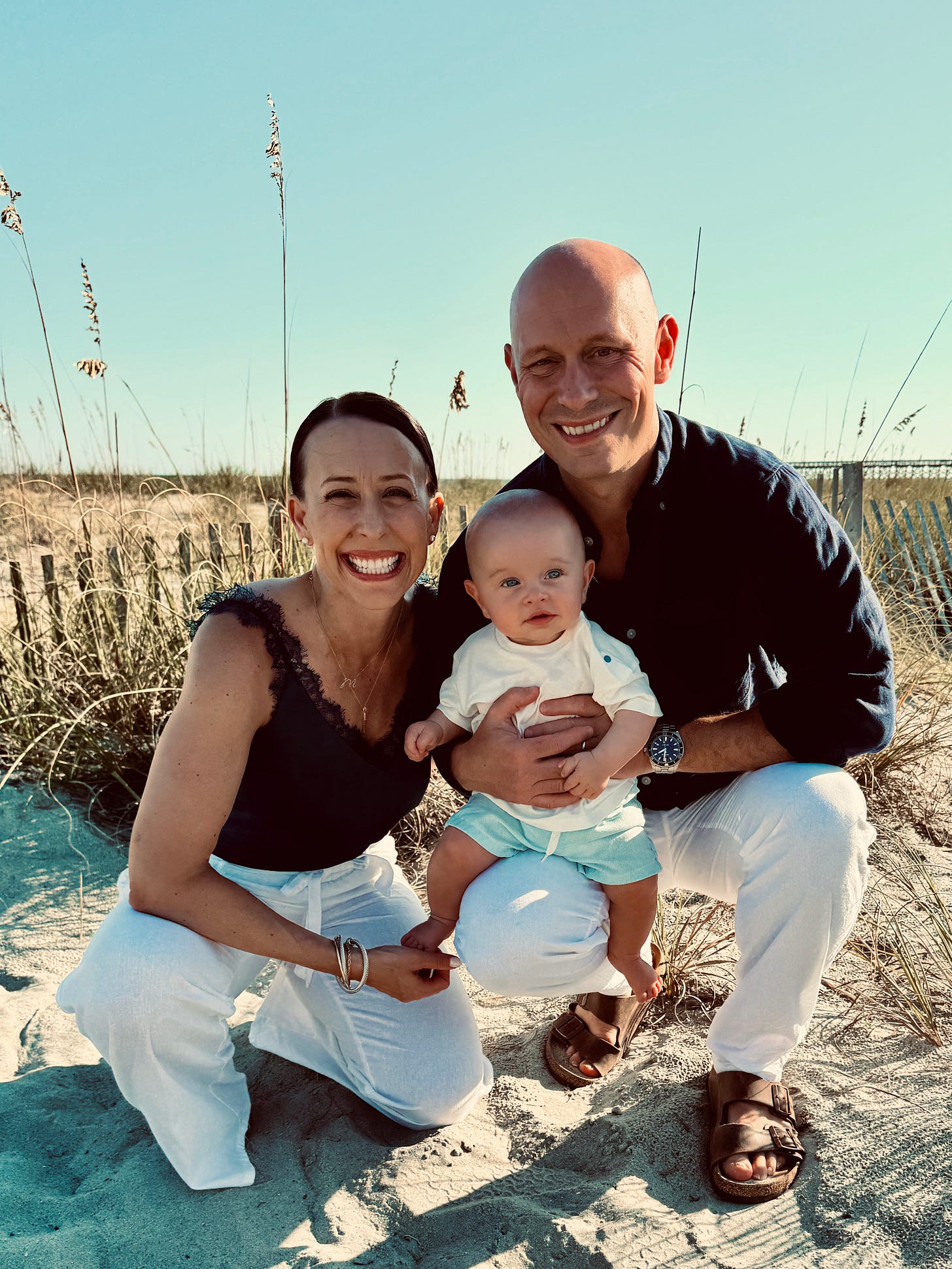
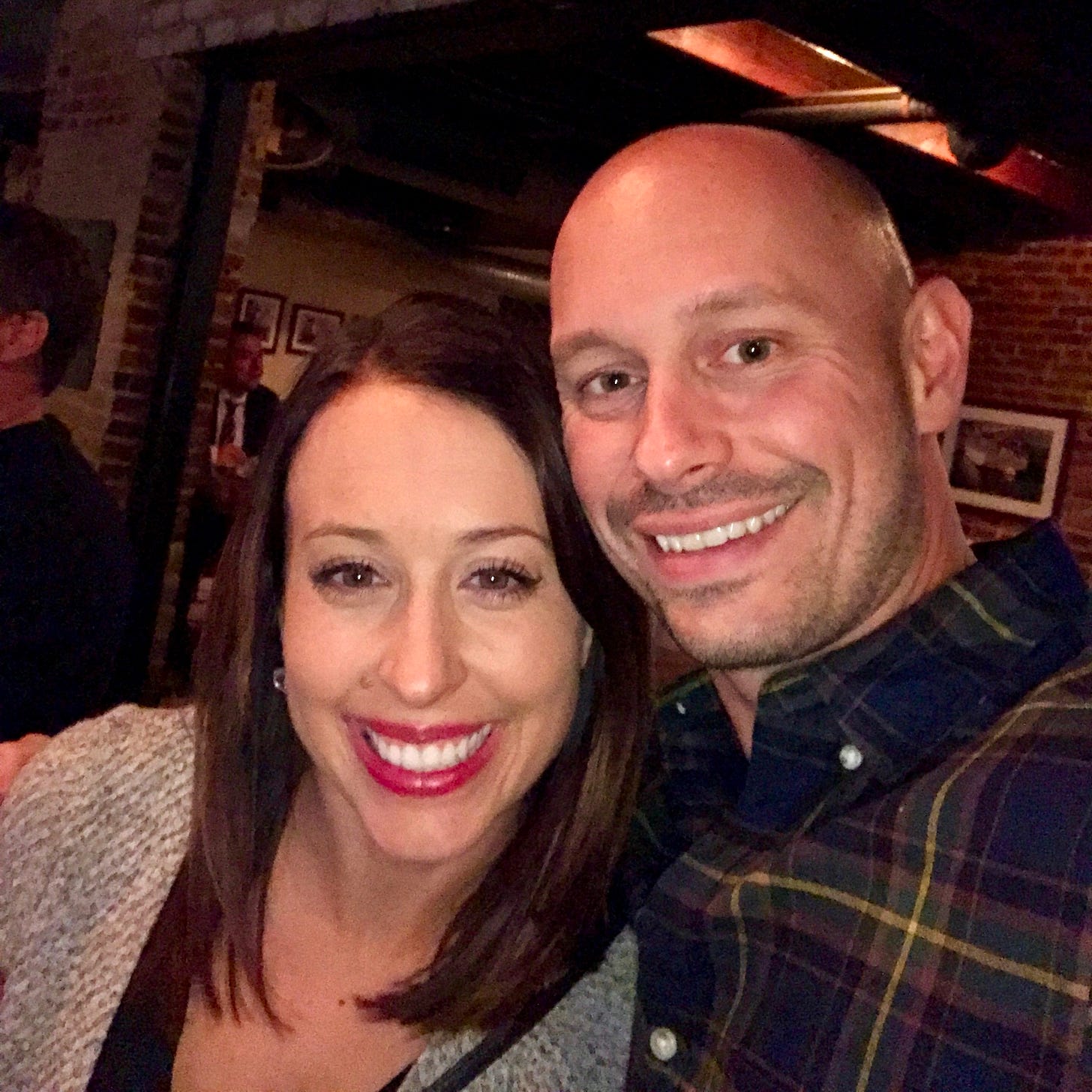
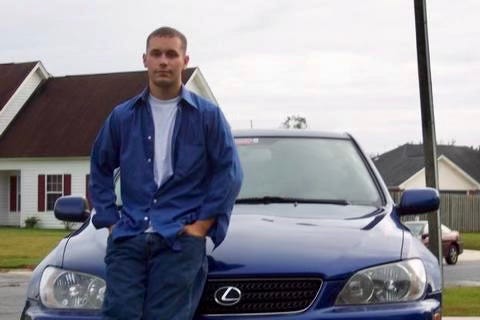
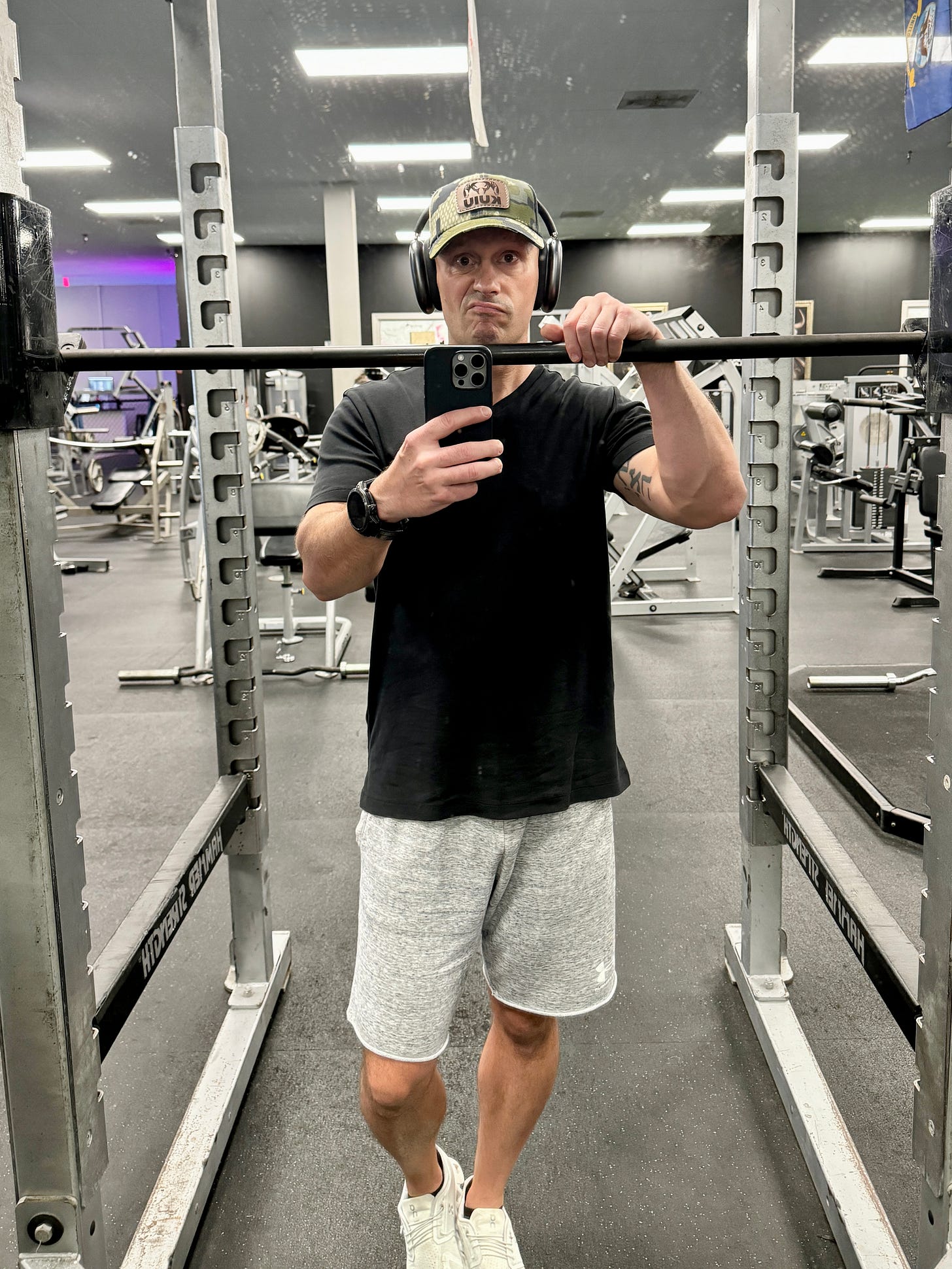
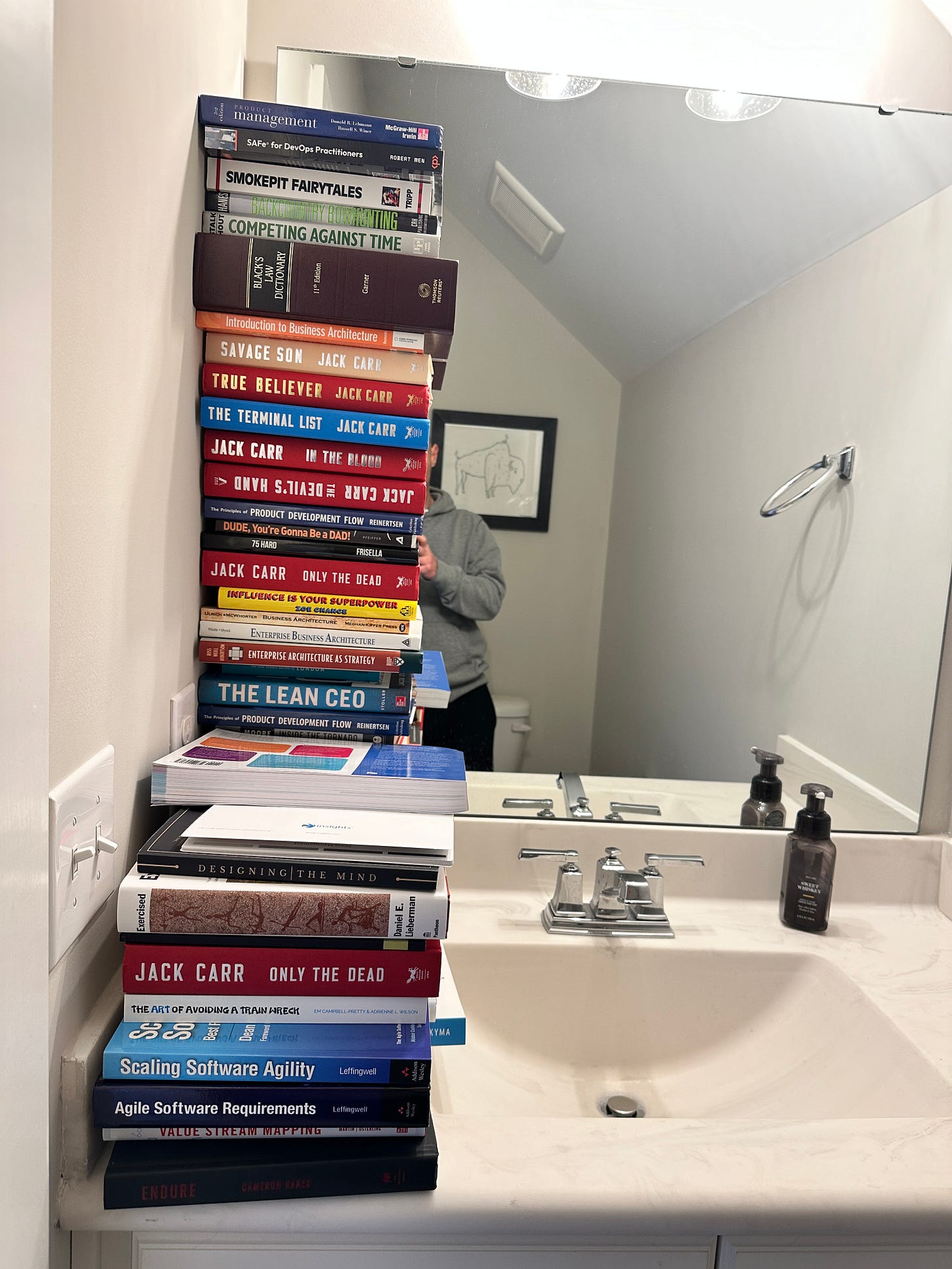
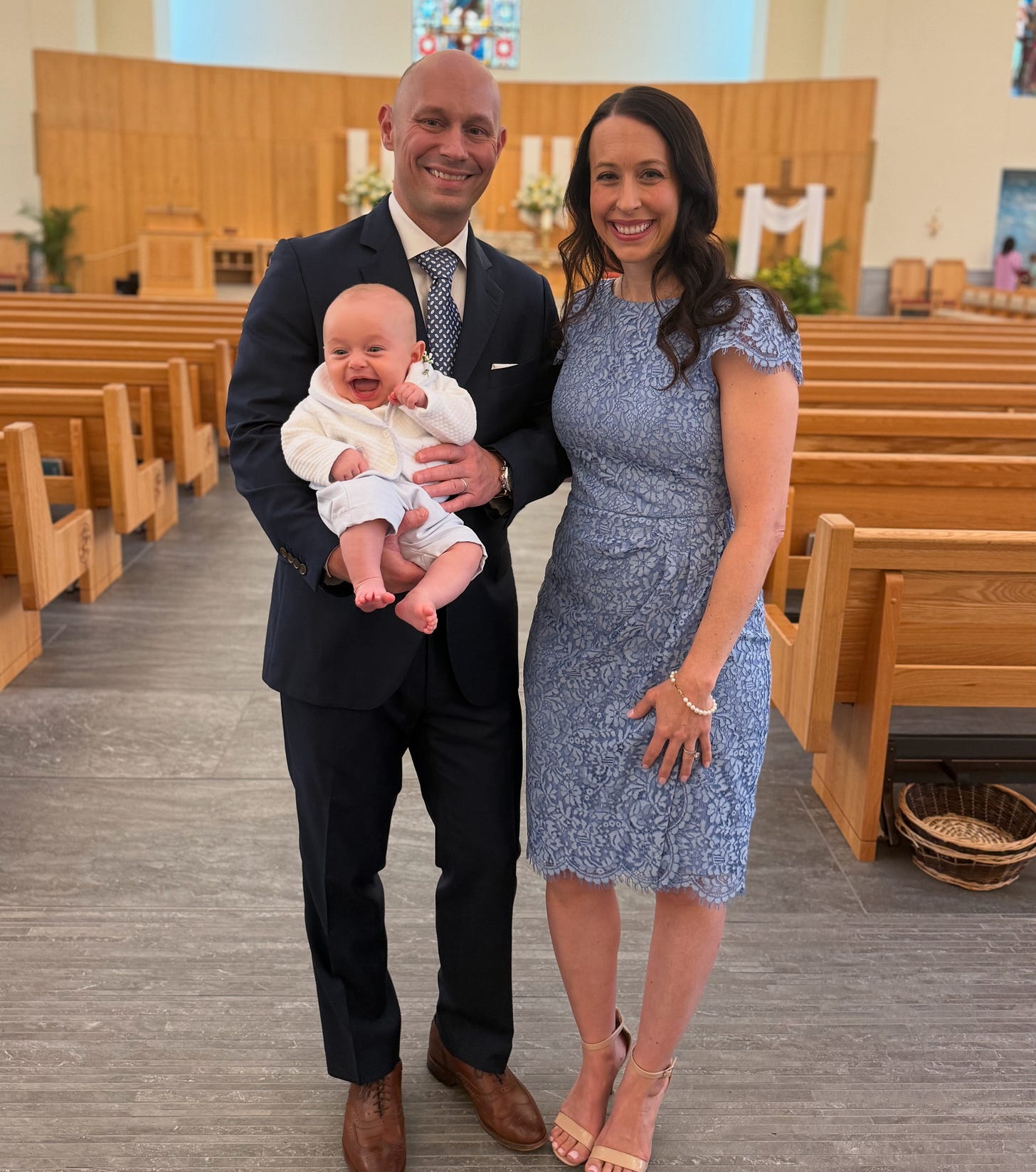
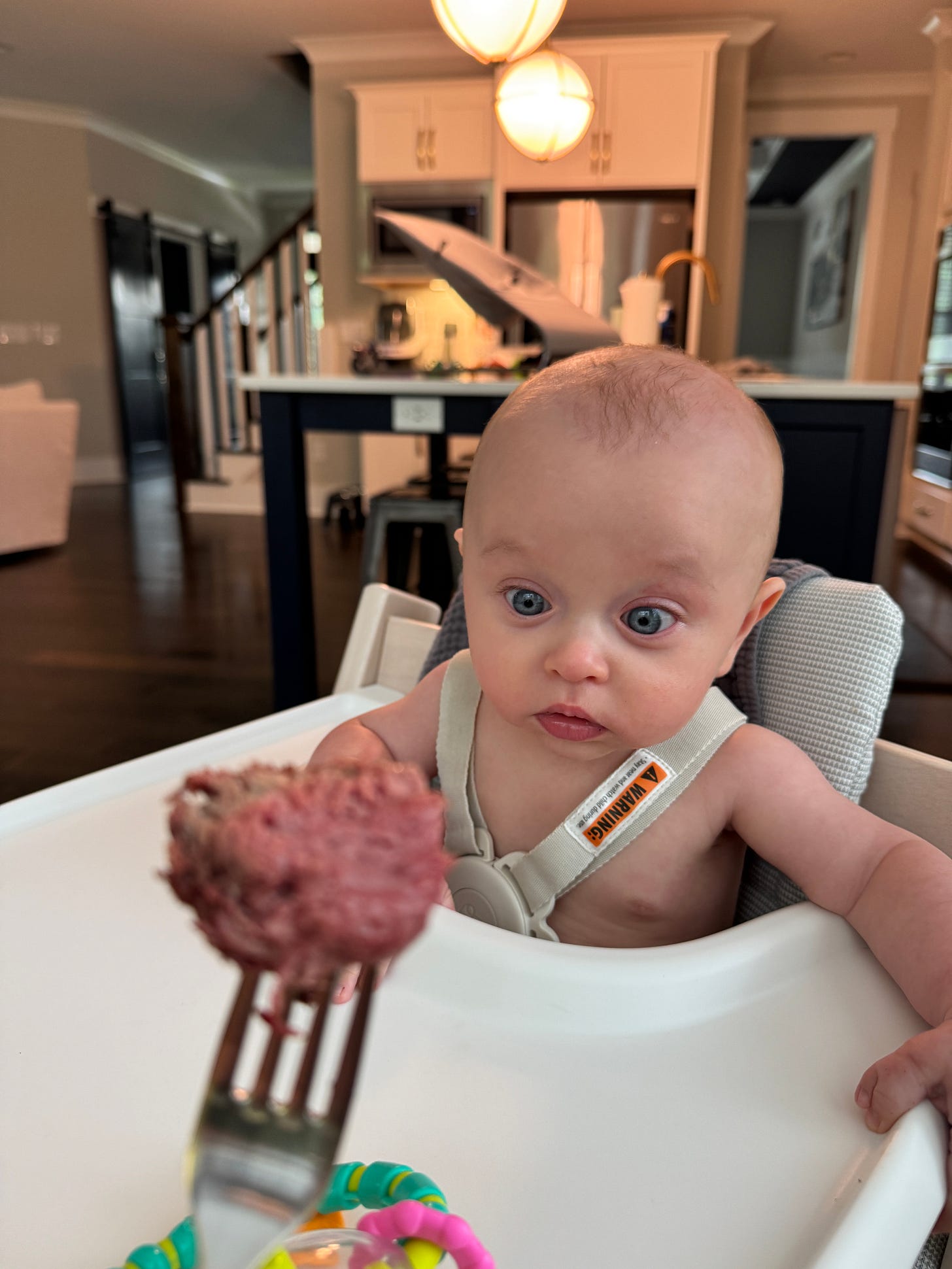
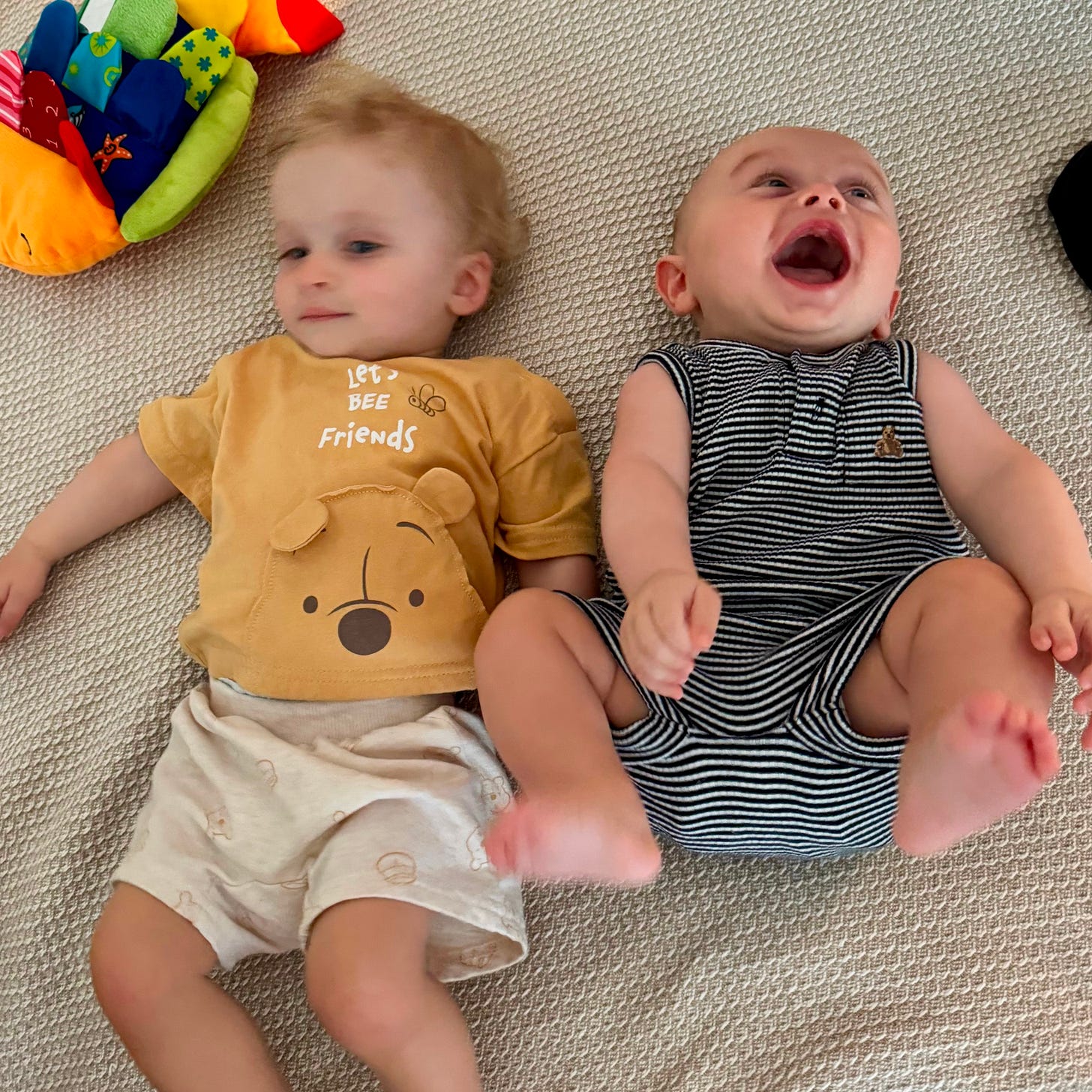
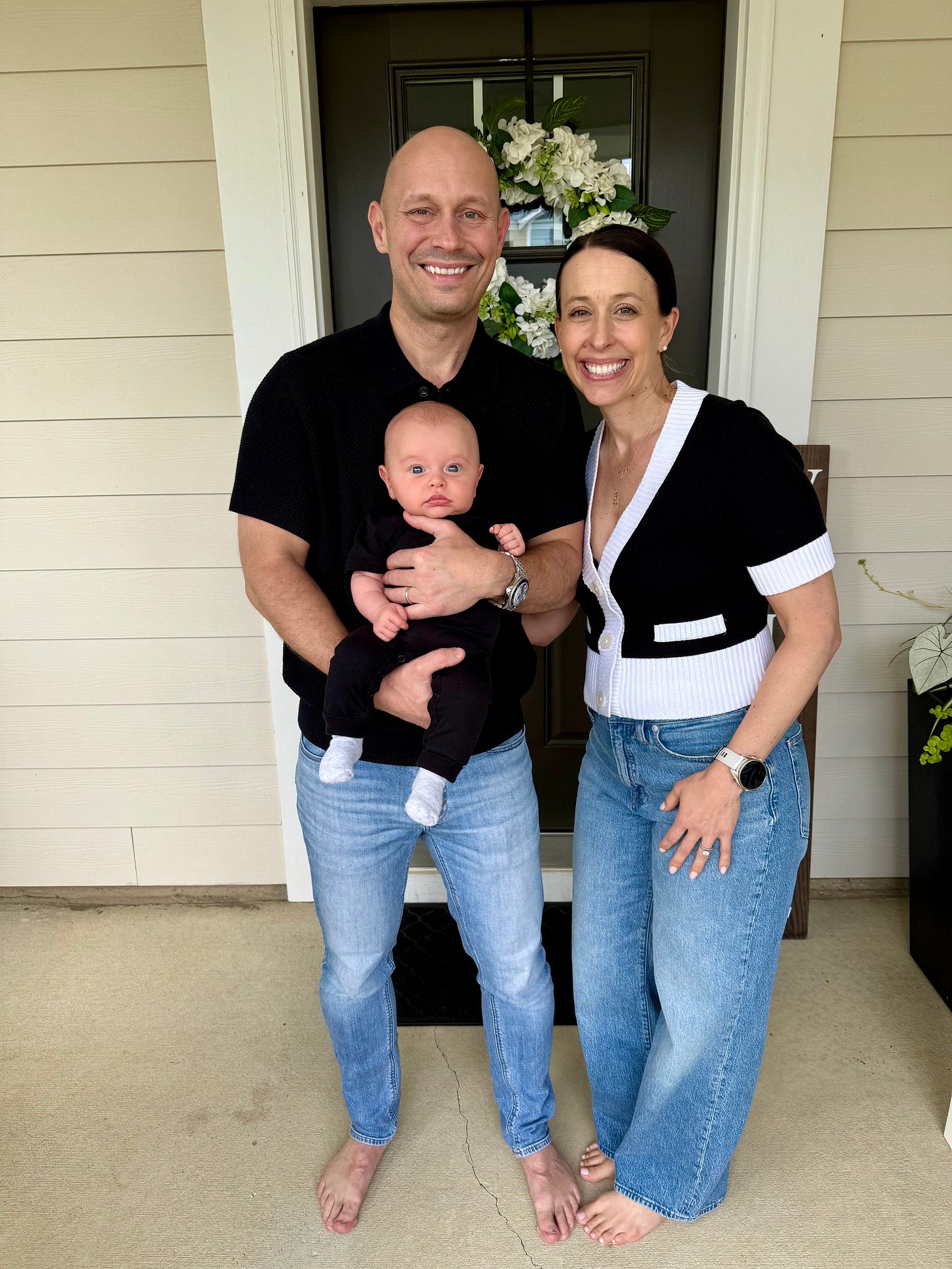
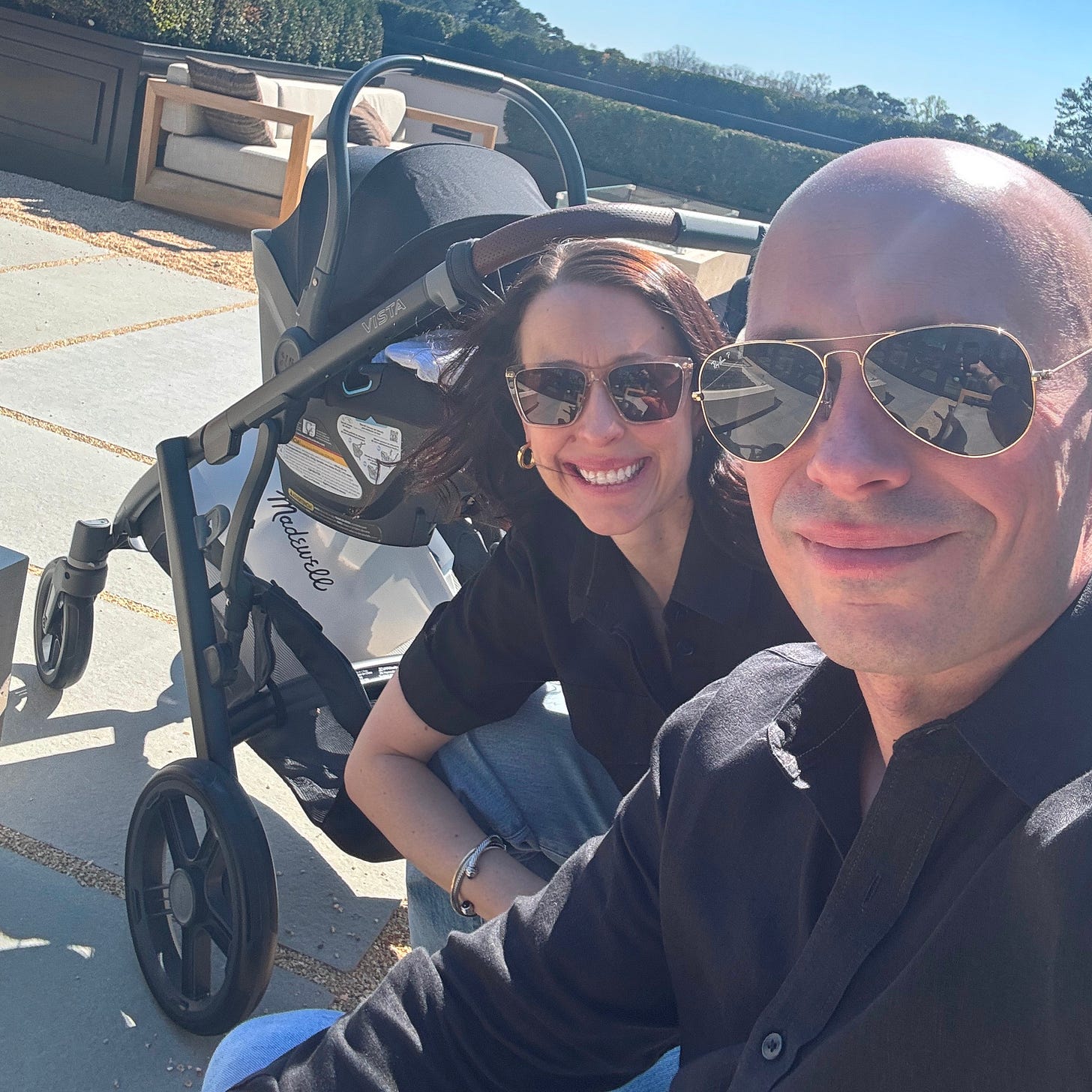
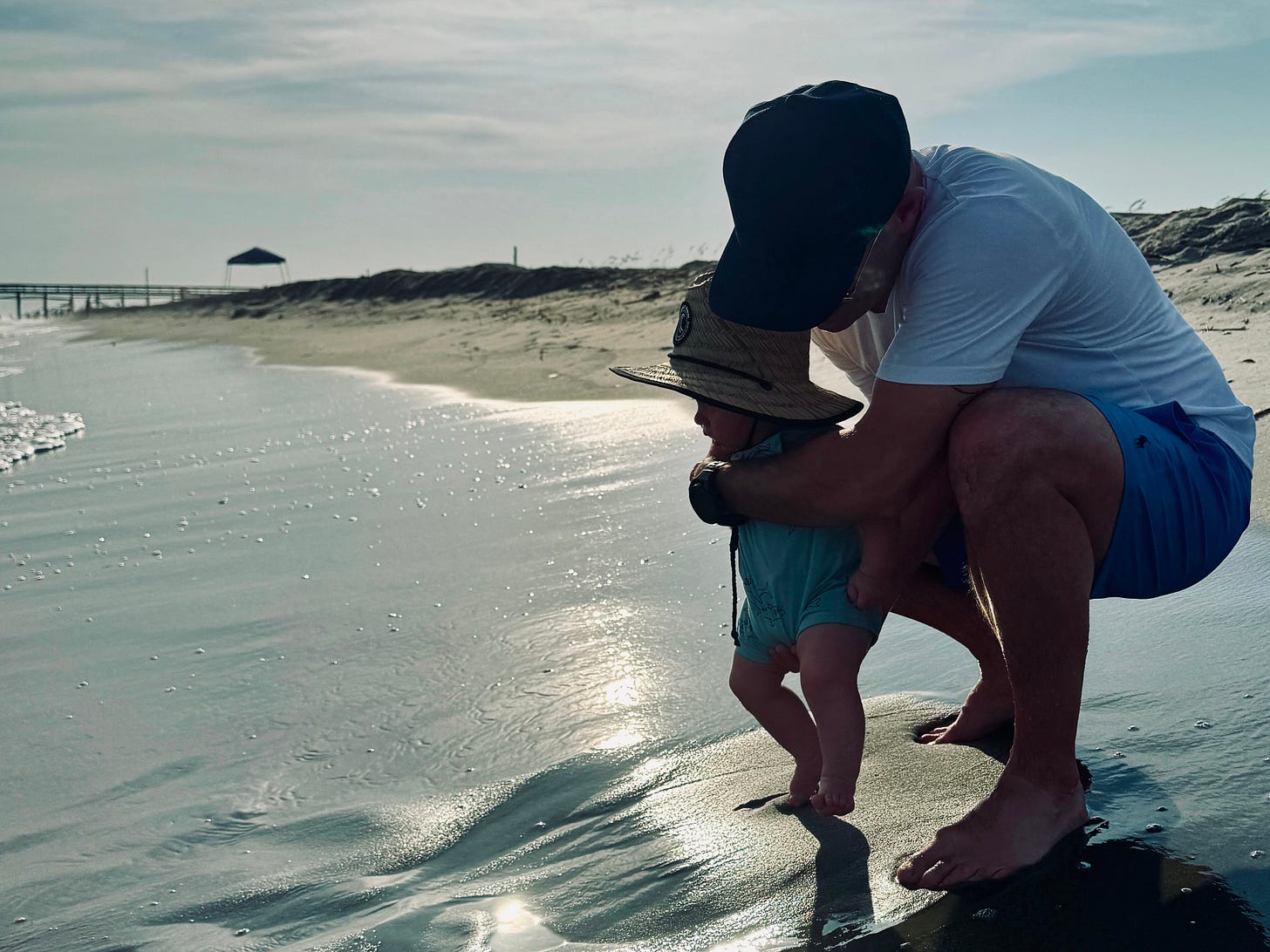
🥰 so rewarding to see you expressing parenthood and life’s core principles & purpose through writing and publishing. Synthesis, Evaluation in the highest order of thought! Congratulations, and keep up the good work!